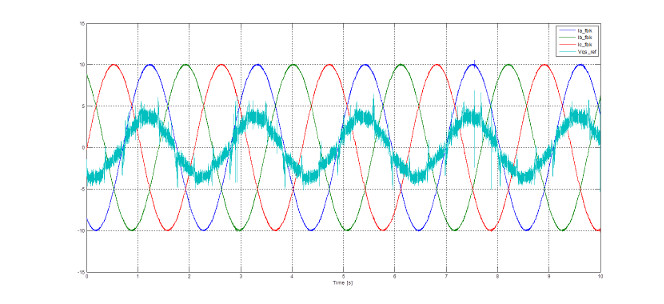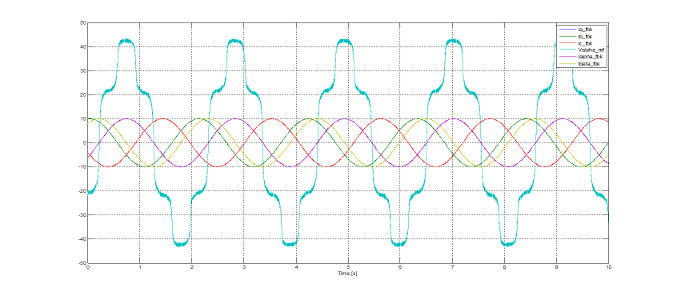When dealing with high performance controls, it is necessary to consider all the aspects which have been initially neglected and may have an impact on performances.
For example, system non-linearities are often supposed negligible and, as a consequence, the power converter is considered as an ideal voltage generator and no difference is supposed to be between the reference voltages demanded by the control and the voltages effectively generated by the converter.
However, every power converter introduces distortions in the generated voltages which differ, even considerably, from the reference ones. This non-linear behaviour is responsible for a performance degradation, especially when the reference voltages are used for additional purposes as usually happens when predictive and sensorless control techniques are used.
We have designed, implemented and tested a procedure able to identify the distortions introduced by the converter and to compensate them at the control level, so practically linearising the system. The procedure is very accurate, fast and allows to achieve an almost perfect match between reference and generated voltages, so improving the performances of the drive especially at low speed/low load conditions.
The effectiveness of this approach can be easily seen when low frequency, high amplitude sinusoidal currents are generated at the converter output: the reference voltages are supposed to be perfectly sinusoidal and with a peak amplitude related to only the demanded current amplitude and the load resistance.

converter behaviour after non-linearities compensation
